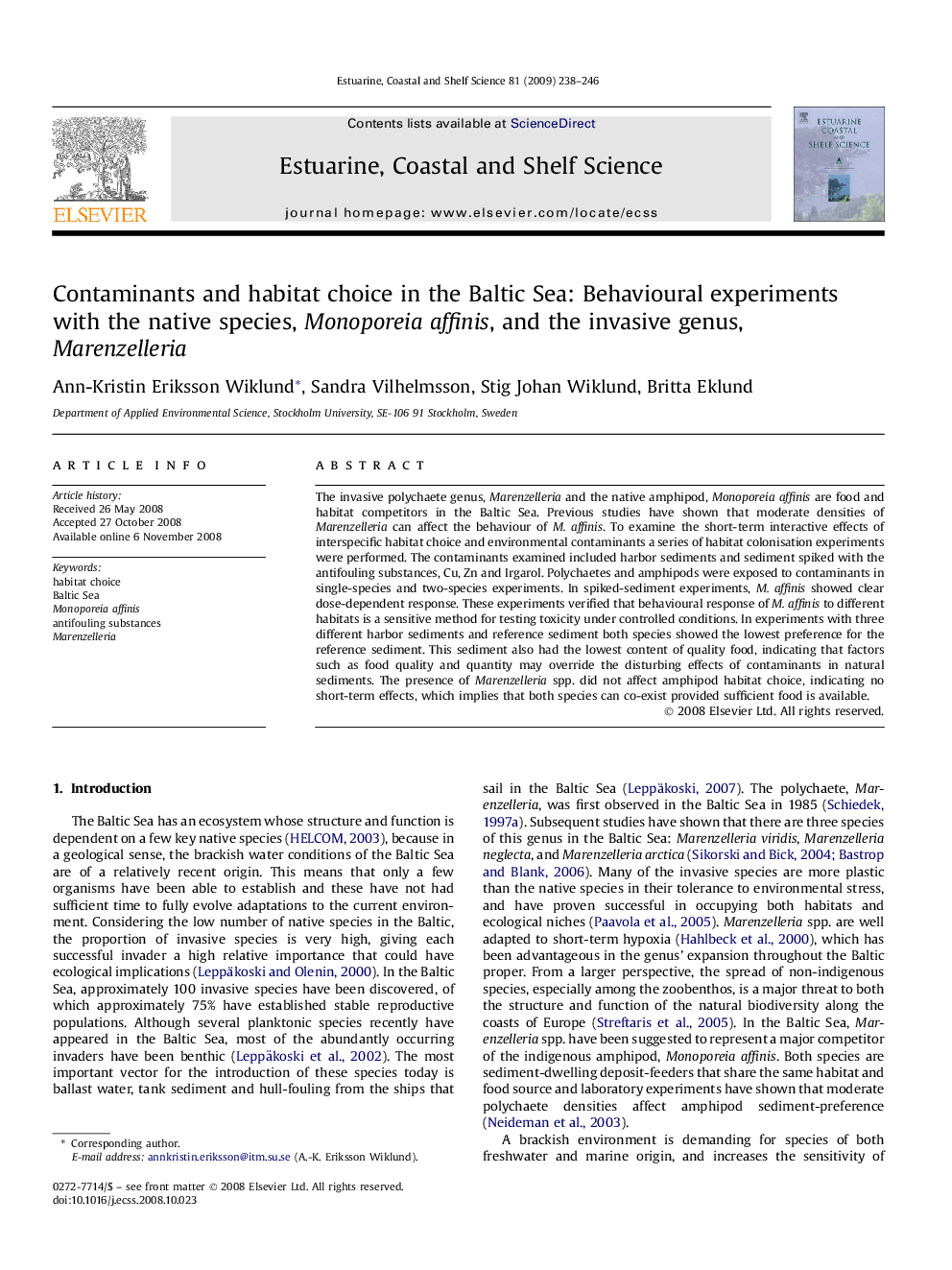| Article ID | Journal | Published Year | Pages | File Type |
|---|---|---|---|---|
| 4541395 | Estuarine, Coastal and Shelf Science | 2009 | 9 Pages |
The invasive polychaete genus, Marenzelleria and the native amphipod, Monoporeia affinis are food and habitat competitors in the Baltic Sea. Previous studies have shown that moderate densities of Marenzelleria can affect the behaviour of M. affinis. To examine the short-term interactive effects of interspecific habitat choice and environmental contaminants a series of habitat colonisation experiments were performed. The contaminants examined included harbor sediments and sediment spiked with the antifouling substances, Cu, Zn and Irgarol. Polychaetes and amphipods were exposed to contaminants in single-species and two-species experiments. In spiked-sediment experiments, M. affinis showed clear dose-dependent response. These experiments verified that behavioural response of M. affinis to different habitats is a sensitive method for testing toxicity under controlled conditions. In experiments with three different harbor sediments and reference sediment both species showed the lowest preference for the reference sediment. This sediment also had the lowest content of quality food, indicating that factors such as food quality and quantity may override the disturbing effects of contaminants in natural sediments. The presence of Marenzelleria spp. did not affect amphipod habitat choice, indicating no short-term effects, which implies that both species can co-exist provided sufficient food is available.
